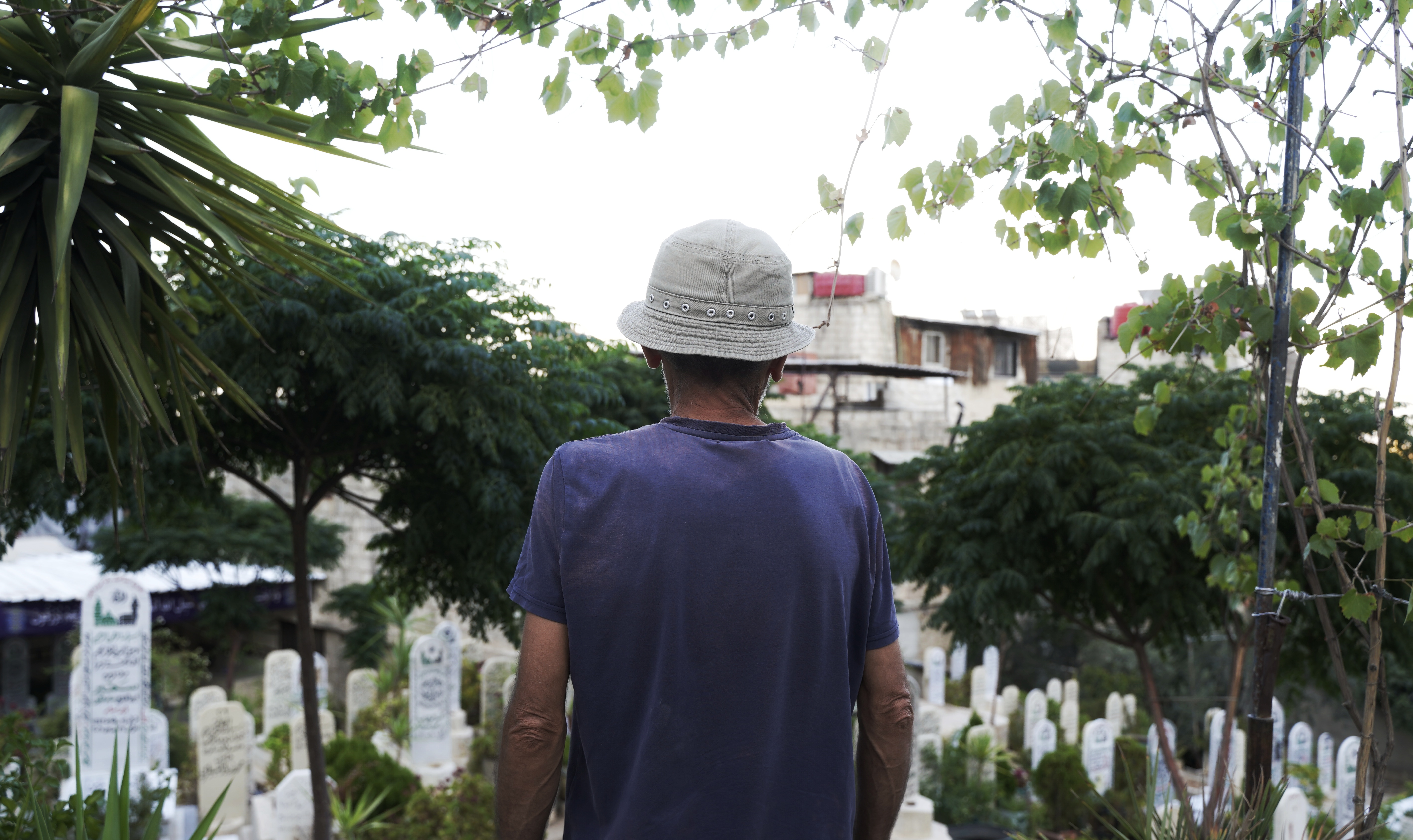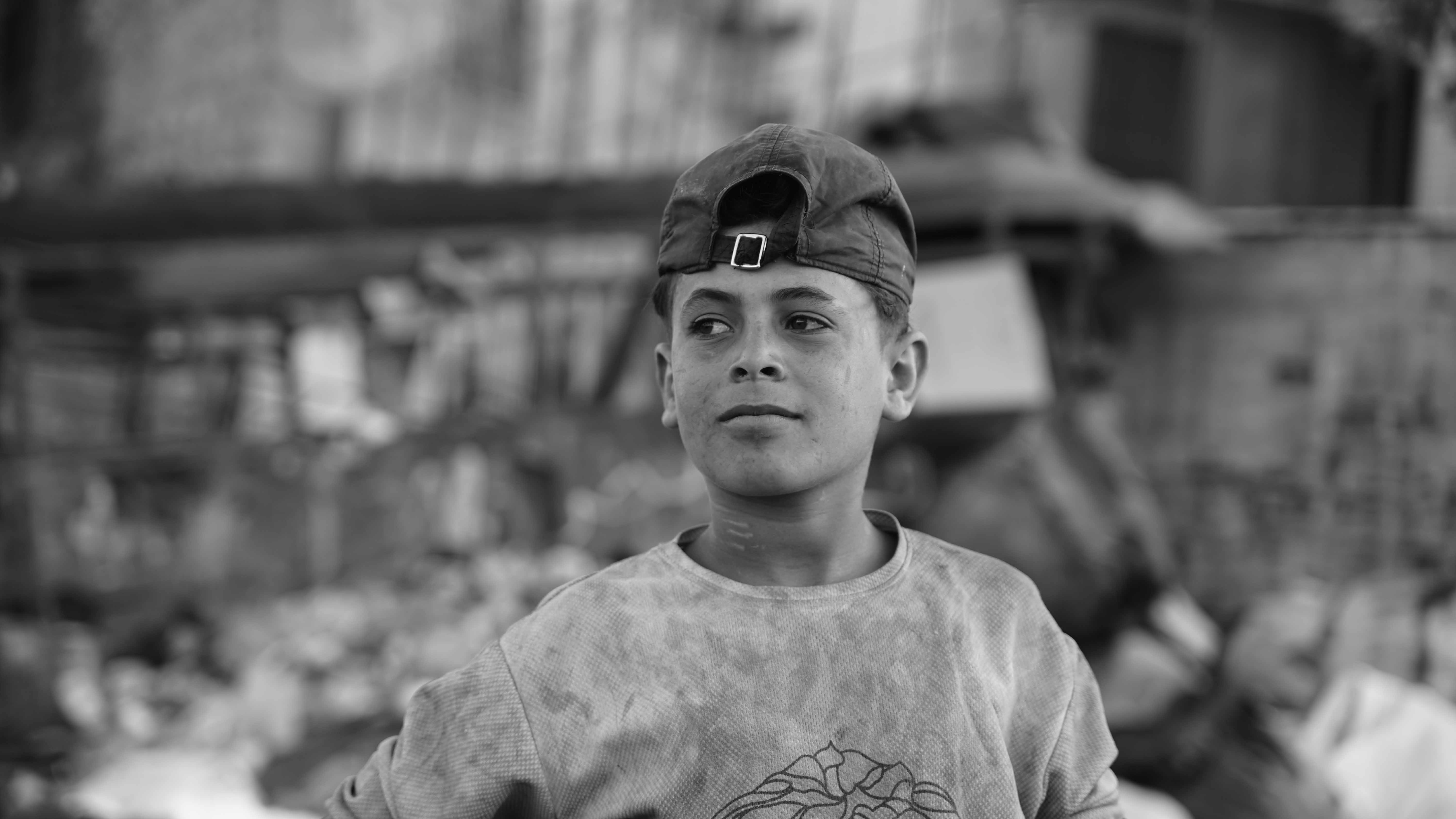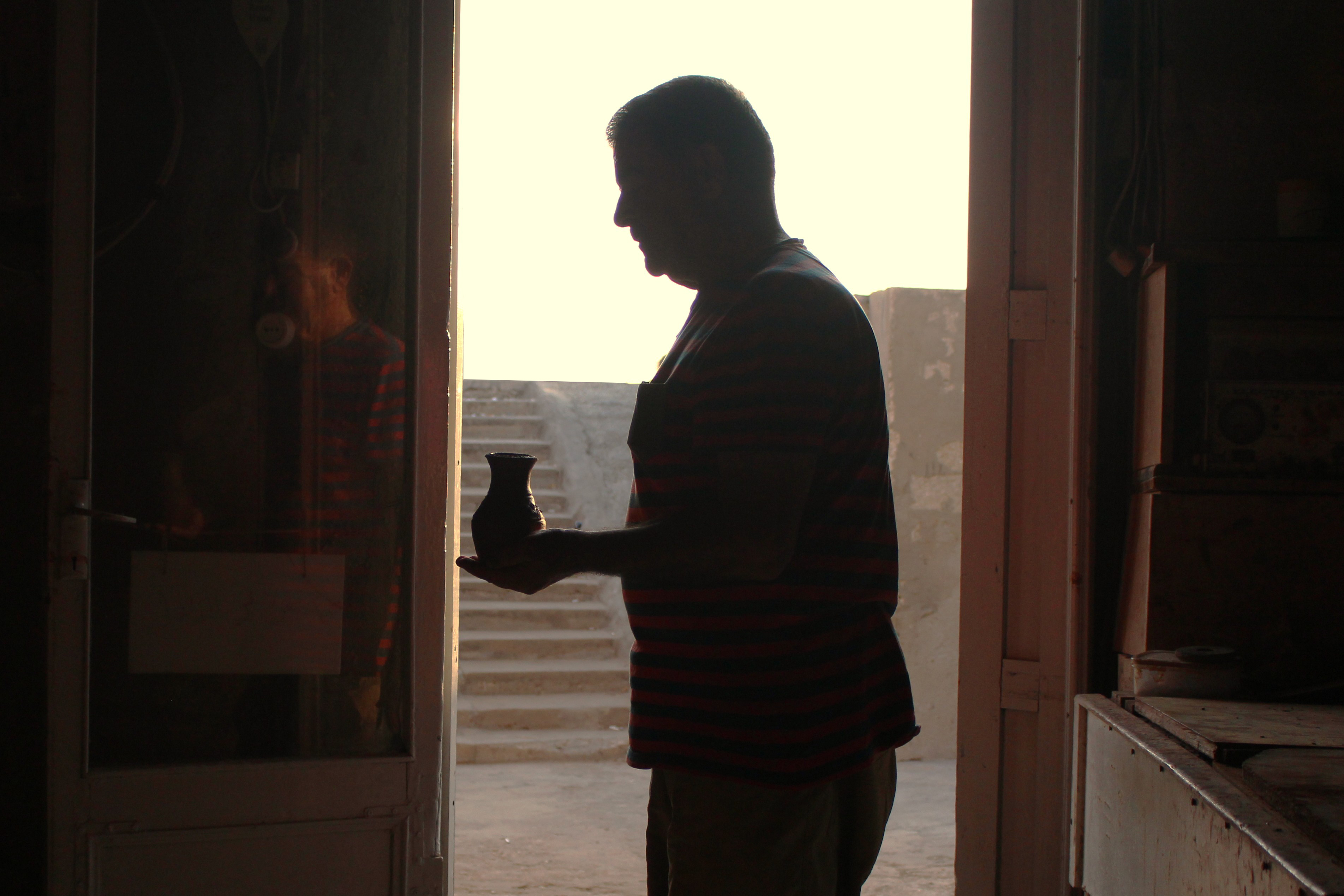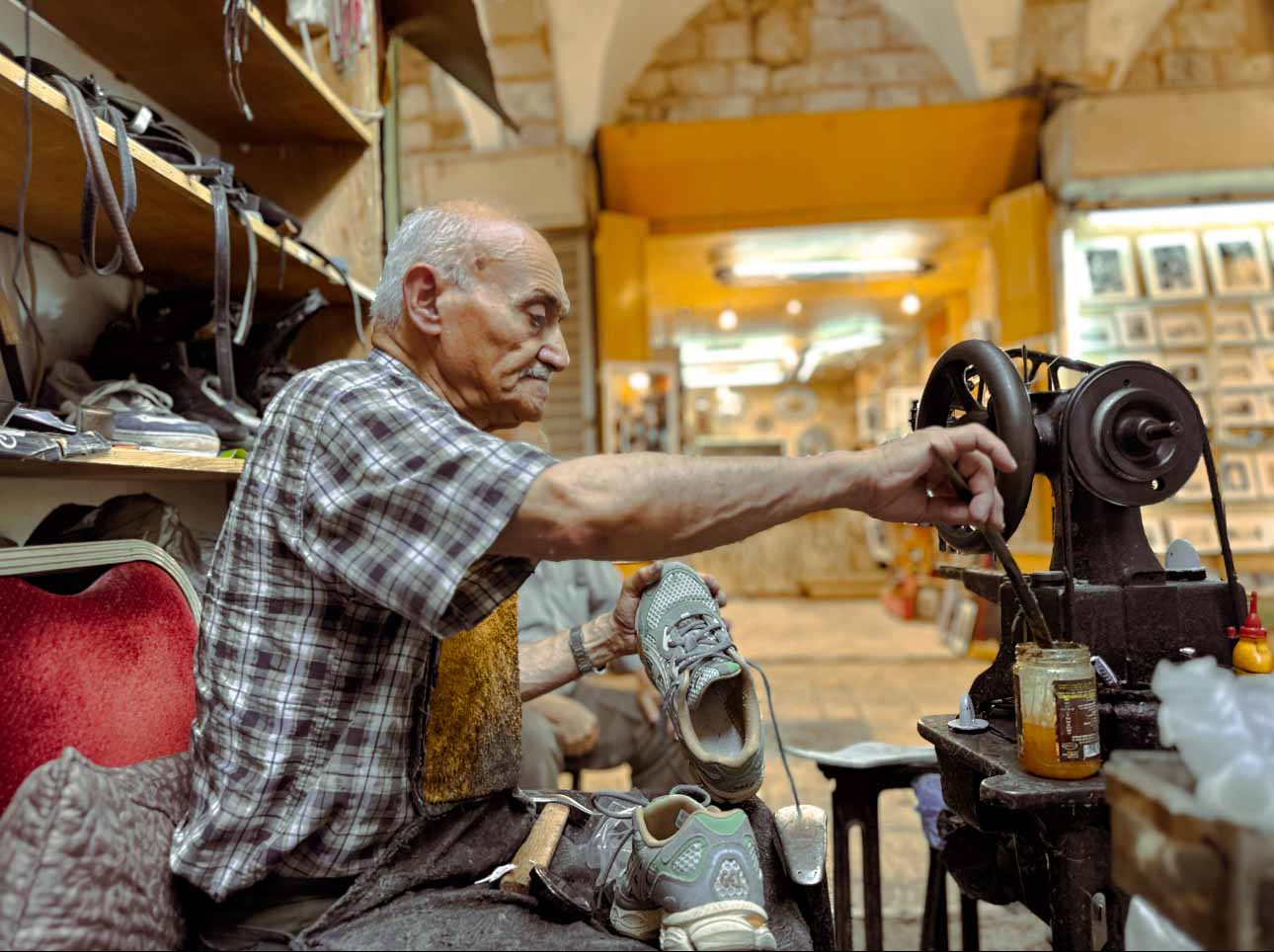From this cemetery, the entire city of Damascus unfolds — the past and the present.
With each sunrise, Abu Mohammad opens the cemetery gate and walks among the graves, watering the trees and plants. He says, “I was young when I started here, and now my hair has turned gray while I’m still standing among the graves.”
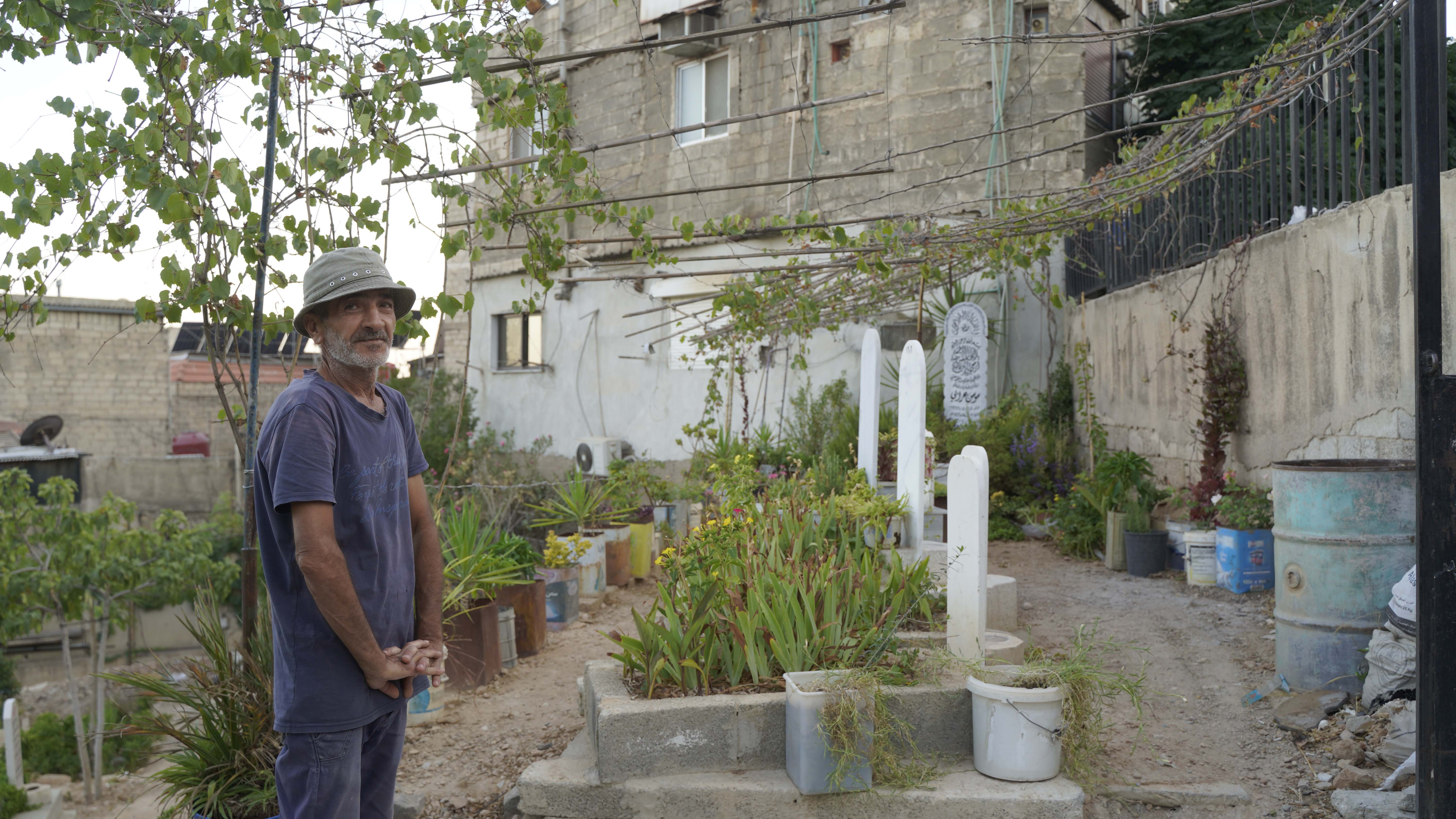
For more than thirty years, Abu Mohammad has worked as the keeper of Al-Salihiyah Cemetery. A thin man, his hands are rough — the hands of someone accustomed to holding a hoe and tending to the soil. He was born in the countryside of Damascus and came to the cemetery as a young man looking for work. He stayed until he became part of the place itself.
“The cemetery became my home. I know every corner of it, and I know everyone here, even if there’s no voice calling their names.”
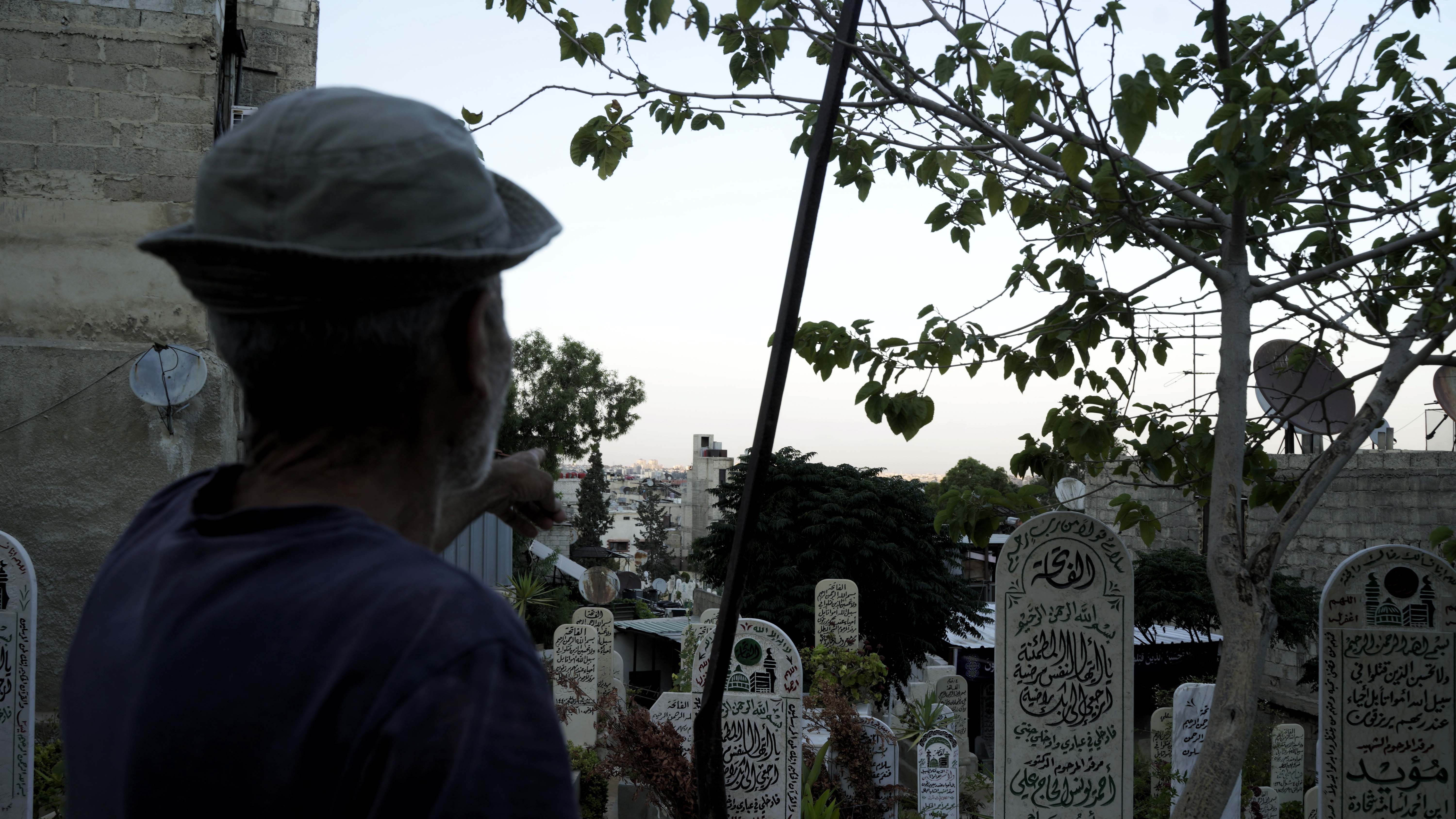
He continues watering the grapevine and some jasmine he recently planted. During his break, he sits under a tin canopy with a cup of tea — sometimes with one of the deceased’s relatives, and sometimes alone, watching the distant city from between the graves.
He points to the grapevine and says,
“I planted it here twenty years ago. I wanted something that would keep giving life in a place everyone thinks is only for death. The vine reminds me that the earth never dies.”
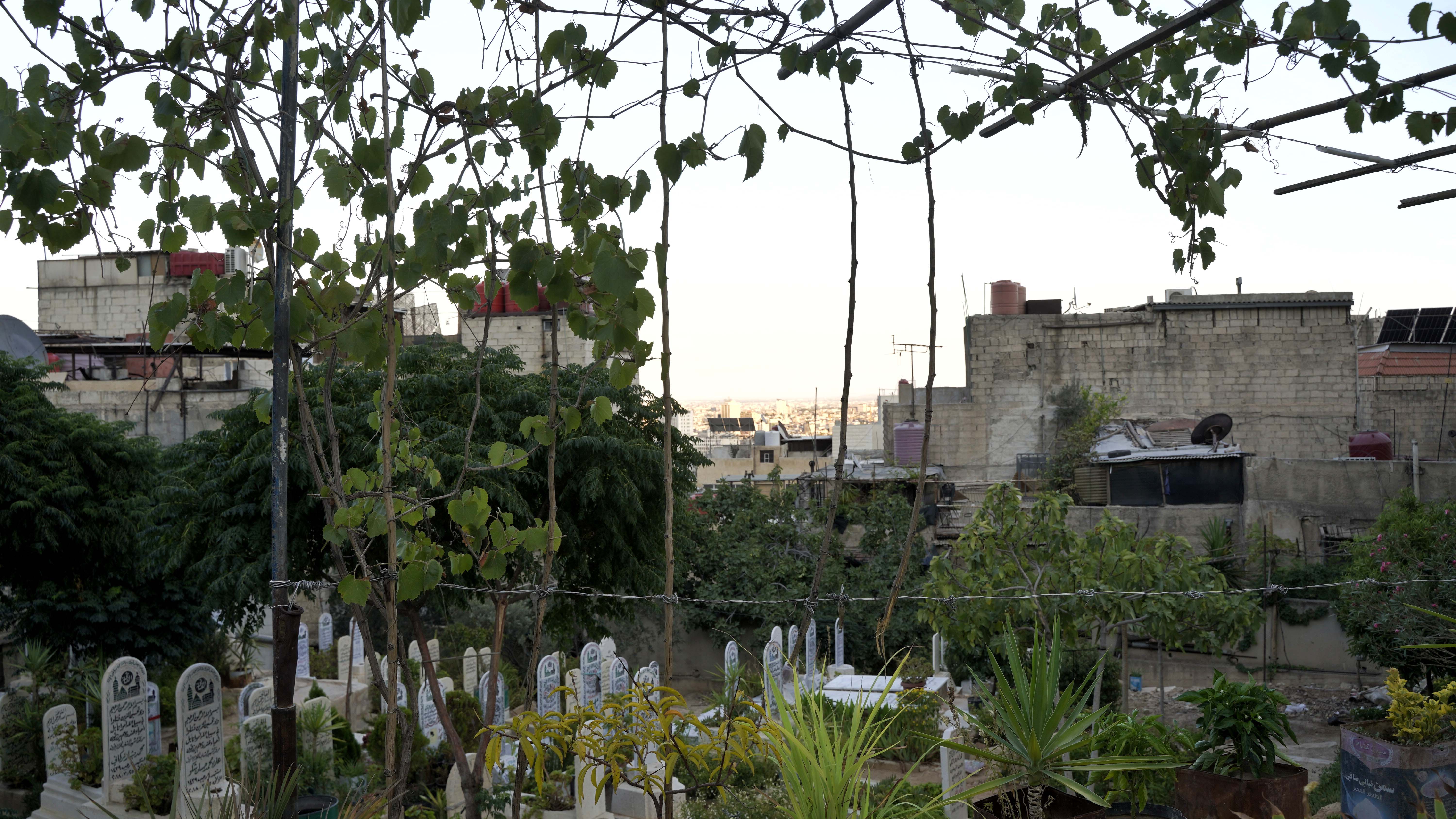
Then he adds,
“The fear of death fades when you live with it every day. The real fear is of being forgotten. Many people were buried here, and no one remembers them anymore… I try, at least, to make sure they don’t become just graves without stories.”
Abu Mohammad is a guardian of memory as he is a guardian of the soil. He refuses to let the graves become forgotten places and insists that life remains within them. He points to some of the graves around him:
“Here lies a man they used to call Abu Mahmoud — his laughter once filled the neighborhood. And that’s Umm Rami; she never turned anyone away and used to cook for her neighbors. Behind her lies her son… he was killed in the war.”

In a grapevine spreading its shade over the tombstones, in a flower he plants beside an old grave, and in the stories he tells about people who once lived, laughed, and loved — Abu Mohammad tends not only to the cemetery but to the living memory of a city that has known death, yet still searches for the meaning of life.

